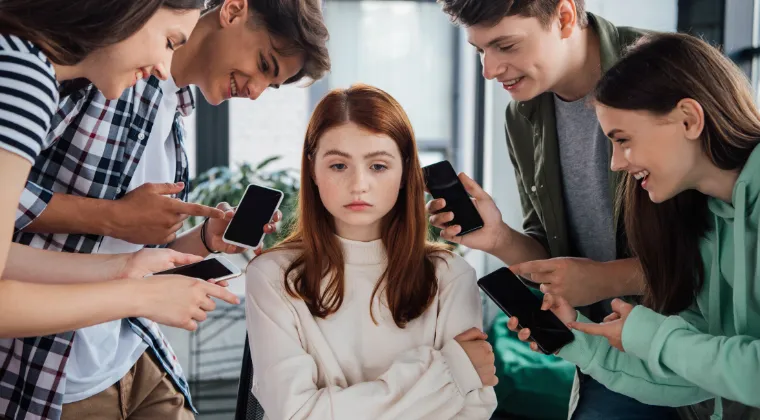The use of social media has skyrocketed within the past decade. With the emergence of popular platforms such as Facebook, Snapchat, Instagram, Twitter and TikTok, research suggests that social media can cause toxic feelings and behaviors in teenagers, young adults and adults. Social media sites play a vital role in how both women and men feel mentally and can cause disorders such as depression, anxiety, loneliness and body image issues. So precisely, how does social media affect mental health?
State of Comparison
With many social media platforms gaining popularity over the years, it is no secret that social media has affected every facet of society. Research suggests that, on average, people in the US spend around 2.5 hours on social media daily. Not only is it a way to connect directly with friends and family, but it has also been a space where people can network with different businesses and organizations.
While there are many positive aspects of using social media platforms, there are also concerns that digital media is causing an increase in mental instability. Frequent social media usage has fueled mental health disorders because users are in a constant state of comparison. It seems that everyday users are on vacation, spending time with friends, getting a promotion at work and going to significant events. This contributes to the feeling of inadequacy about one’s life or appearance. Although images can often be manipulated with filters and photo editing platforms, it does not lessen the feelings of envy and dissatisfaction with oneself.
Fear of Missing Out (FOMO)
A common thread connecting younger generations is the “fear of missing out” or “FOMO.” Social media is a significant catalyst for the feeling that everyone else is living a better life—they seem to be granted better opportunities, they have more money, they have traveled more, etc. This fear of missing out can trigger anxiety and self-esteem issues; it fuels that sense of constant comparison. But instead of cutting out these negative associations, it becomes obsessive, to the point where people need to check their phone every few minutes for live updates—even if that means checking while driving or in the middle of the night.
Even though the media itself reminds us that online personalities are generally skewed in favor of each individual’s best attributes, our reality has been altered. It can be difficult to separate oneself from feelings of inadequacy when 2.5 hours of every day remind you of said feelings.
Depression and Anxiety
As humans, we need face-to-face interactions to keep our mental health at peak performance. The more we prioritize looking at our phones and computers, the less we can interact fully with friends and family. When neglecting human interaction, there is more risk of developing mood disorders such as depression and anxiety. Social media acts as empty calories for social interaction; time-consuming and mentally stimulating, but not fulfilling nor socially sufficient.
Social media also significantly impacts users’ sleep, triggering those depressive and anxious feelings. In a study testing how a one-week break from social media would affect people, the participants who took that break reported optimistic thoughts about the future and fewer symptoms of anxiety and depression. That is just from a one-week break!
Social Media and Mental Health
So, how does social media affect mental health? Overall, negatively—if being used in abundance.
It is unrealistic to think about our society doing away with social media at this point; it is ingrained into modern life. But practicing healthier habits can help ease these negative effects. Being intentional with the accounts one interacts with and limiting the time spent on social media can significantly improve the impact of social media on mental health.
For more information on wellness, check out our blogs covering a variety of helpful topics.

